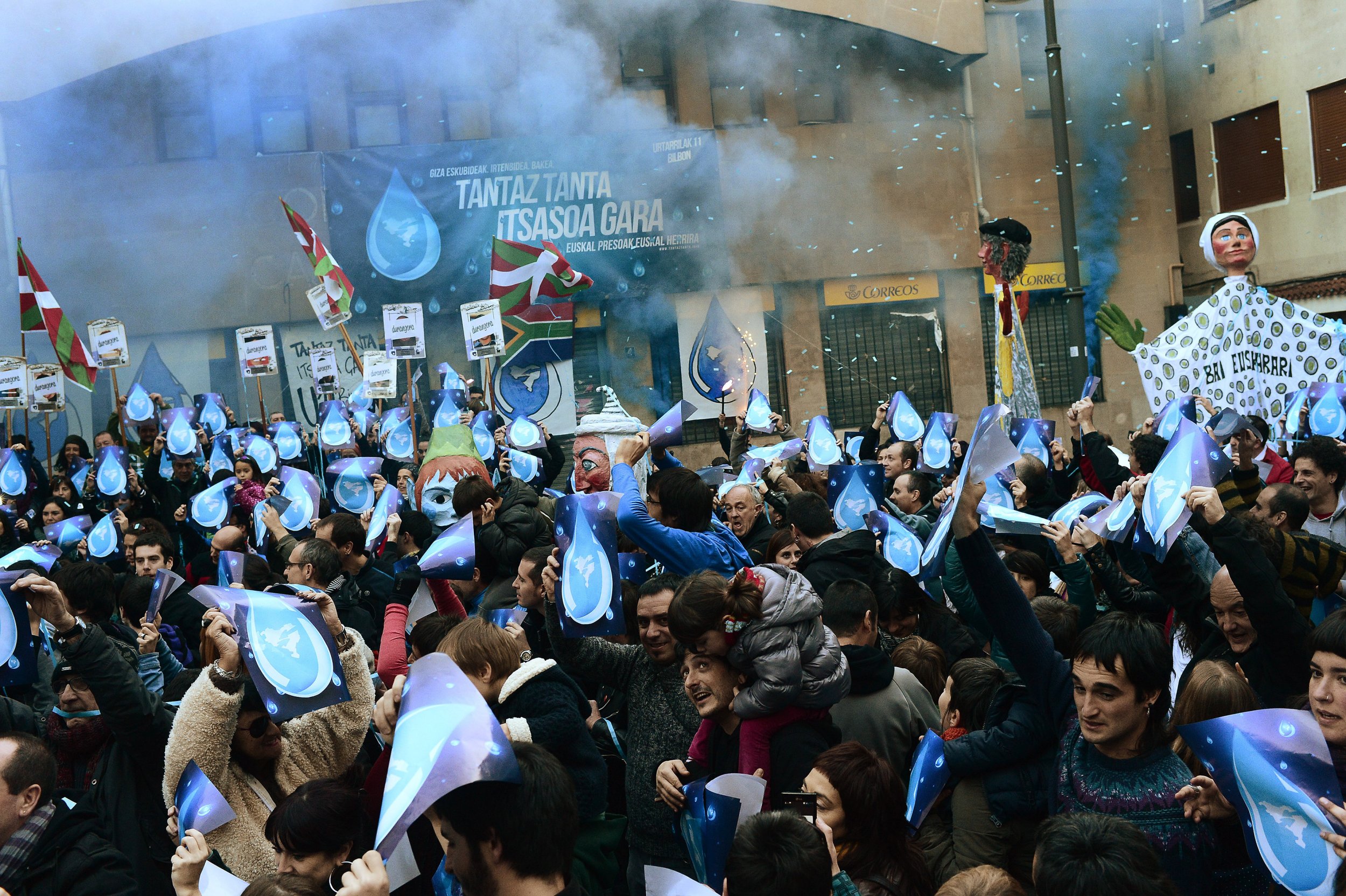
Incarcerated former separatist militants from the infamous Basque separatist group Euskadi Ta Askatasuna (ETA) have endorsed Spain's extreme leftist political party Podemos in the upcoming national elections, Spanish newspaper ABC reported on Monday.
According to the paper's series of interviews with former ETA operatives, they believe only the grassroots movement led by ponytailed lecturer Pablo Iglesias will reform laws which are still keeping the vast majority of them in jail.
Although the terrorist group, accused of killing around 800 people over the last 40 years in their violent campaign for an independent Basque state across territories in Spain and France, announced an end to armed operations in 2011, the Spanish government has refused them more lenient sentences.
"You can talk with Podemos and come to an agreement," one former ETA operative said "If Podemos get a good result they will change the whole political spectrum."
Another one of his former 'colleagues', an ETA bomb expert, echoes his words saying "When it comes to [the Basque country] the Spanish government will not move an inch to do anything. However if Podemos win, this will change the landscape in the Basque region."
According to Etxerat, a group that represents the relatives of ETA prisoners, there are almost 400 ETA prisoners in Spain, only six of whom are kept in prisons within the Basque country- 45% of them are in Andalucia.
Most captured ETA members asked to serve their prison sentences in the Basque region, hoping they would receive much milder treatment and be freed quicker, according to ABC.
"With Podemos in power we will go back to the Basque country and then I am getting the hell out of [jail], that's for sure" a third former ETA terrorist said.
Basque separatists have long felt disaffected with Spain's two biggest parties, PP and PSOE, seeing themselves as much more natural bedfellows with the Basque independence party Amaiur. However, the arrival of Podemos has led to one convicted ETA gunman saying that the the Basque nationalists can work with the grassroots movement.
"Some of our people look fondly at Podemos, others are afraid they will steal leftist votes. I am convinced that we can be very good companions, companions who have both waited decades to find presence amidst the Spanish Republican left and make decisions with them," he said.
Podemos have risen to prominence after being formed by political newcomer Pablo Iglesias less than a year ago. His policies have been deemed extreme and compared to those of former Venezuelan president Hugo Chavez, proving popular among Spaniards. A recent poll showed Podemos are currently the most popular party in the country.
Iglesias has not spoken often about Basque independence as it remains a controversial topic in Spanish politics, despite ETA surrendering their arms in 2011. However, he did raise Basque hopes earlier in the year, saying that ETA's terrorist activities had to be considered in terms of its political motivation.
Iglesias also chimed in earlier in the year on this most recent point of contention between Madrid and ETA, saying his government would be willing to discuss the treatment of ETA prisoners.
While there are no indicators that ETA have close to majority support in the Basque region, calls for granting ETA prisoners more rights have gathered support, notably earlier this year when 100,000 marched in the Basque capital of Bilbao demanding ETA operatives serve their sentences in Basque prisons.
The group have become one of the most powerful terrorist organizations in Europe, active primarily across Spain and France, with over 700 former members imprisoned for participating in terrorism.
The Spanish national government has come under scrutiny for deliberately being harsher on captured members of the group. One instance last year saw the European Court of Human Rights having to intervene, forcing Spain to release one former ETA operative who was sentenced to 3,000 years in jail when Spanish law only permits a maximum sentence of 30 years.
Uncommon Knowledge
Newsweek is committed to challenging conventional wisdom and finding connections in the search for common ground.
Newsweek is committed to challenging conventional wisdom and finding connections in the search for common ground.
About the writer
I am a Staff Writer for Newsweek's international desk. I report on current events in Russia, the former Soviet Union ... Read more
To read how Newsweek uses AI as a newsroom tool, Click here.








